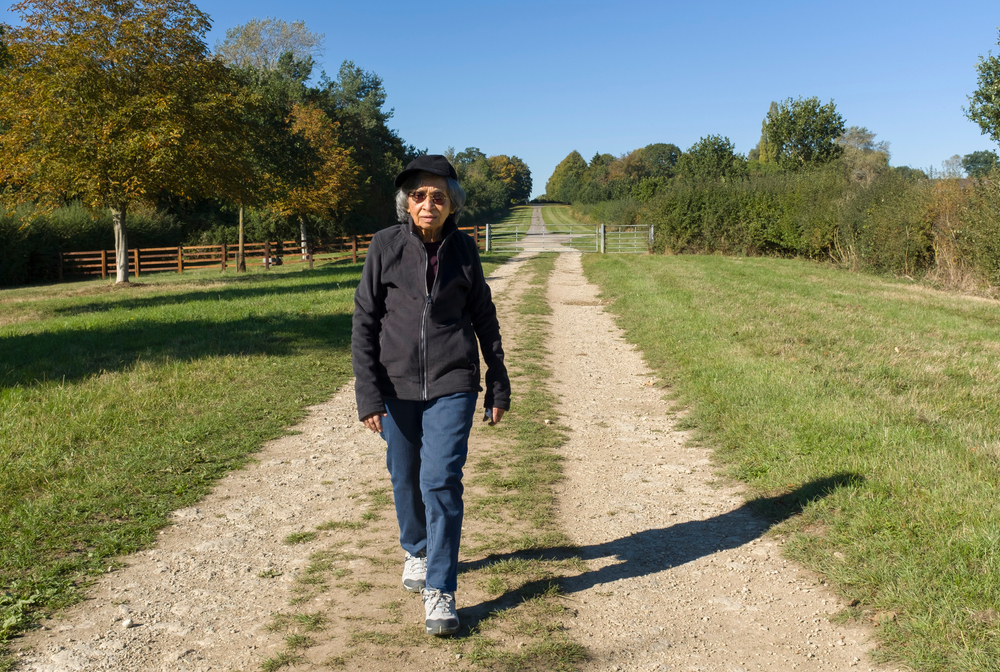“It is a shame for a man to grow old without seeing the beauty and strength of which his body is capable.” – said Socrates; and we absolutely agree! The benefits of walking for seniors are phenomenal. New studies reveal that you can trigger neurogenesis by just walking. Here’s how:
- Walking may help you grow new brain cells.
Moderately paced walks stimulate the release of a protein called brain-derived neurotrophic factor, or BDNF, that is key to the survival of existing brain neurons and the generation of new ones. “Perhaps the most exciting finding is that aerobic forms of exercise [including walking] likely help facilitate the growth of new neurons,” says a study at the University of North Carolina

- Walking may boost your creativity.
Walking increases the flow of oxygen and nutrients to the brain, which can open the gates to enhanced creativity. The brain uses “about three times as much oxygen for healthy neuron function as muscles do” and is extremely sensitive to decreases in oxygen levels, according to Advanced Neurotherapy, a neurofeedback wellness clinic in Needham, Massachusetts. Creativity is a cognitive skill that is part of problem-solving. Studies show that the simple act of getting up from your desk and taking a short walk can help trigger ideas. A Stanford University study found “creative output increased 60 percent when participants were walking,” even on a treadmill facing a blank wall.

- Walking may enhance your mood.
When you walk, increased blood flow to the brain initiates a “cascade of changes,” says Marie Pasinski, M.D., assistant professor of neurology at Harvard Medical School. “A cocktail of feel-good neurotransmitters — serotonin, dopamine, endorphins — is released.”
Our bodies manufacture vitamin D when exposed to sunlight furthering the production of serotonin, a hormone benefiting memory and mood. Even on a cloudy day, “exposure to light elevates the mood,” says John Ratey, M.D., associate clinical professor of psychiatry at Harvard Medical School.
- Walking may reduce the risk of cognitive decline.
Participants who walked more than 4,000 steps per day had healthier brain tissue in the area responsible for memory, learning and cognitive function than those who did not. That brain region, called the hippocampus, typically begins to shrink in late adulthood, leading not only to impaired memory but also an increased risk of dementia. The research revealed that aerobic exercise increases the size of the hippocampus.

- Walking may decrease brain-damaging stress.
Repeated exposure to stressful situations impairs memory, attention and cognitive flexibility. Walking in nature has been shown to be particularly effective at reducing stress levels. The impact of being outdoors may have to do with “optic flow” — the perception that objects are moving past us as we walk, which quiets the circuits responsible for stress, says Andrew Huberman, a neuroscientist in the Department of Neurobiology at Stanford Medicine.
“Self-generated optic flow — by walking, running or cycling — shifts the brain into a state of relaxation that’s not seen when you’re stationary,” he says. Scientists have seen walking reduce levels of cortisol, which surges during fight-or-flight situations. Elevated cortisol levels may damage cognition and contribute to Alzheimer’s disease, according to a 2019 review of studies in Frontiers in Aging Neuroscience.
Just a 20-minute walk has been shown to reduce stress and build the senior brain.




